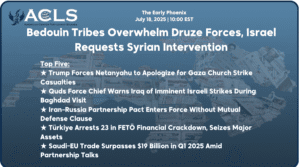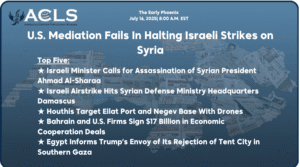The India-Middle East-Europe Economic Corridor (IMEEEC) has captured worldwide interest owing to its geopolitical significance (Al Jazeera). This transformative initiative secured endorsement during the G20 summit in New Delhi and enjoys support from influential nations, such as the United States, the European Union, Saudi Arabia, India, and Russia (Sharq Al Awsat) (Al Jazeera). The ambitious project aims to bolster trade, construct vital infrastructure, and improve global energy security (Al Hadath).
Significantly, Saudi Arabia has taken a pivotal role in advocating for swift action and the establishment of necessary mechanisms (Sharq al Awsat). The Kingdom is urging the immediate implementation of a Memorandum of Understanding (MoU) inked during the G20 meetings in New Delhi, with the aim of establishing an economic corridor linking India, the Middle East, and Europe. This initiative involves key nations such as Saudi Arabia, the UAE, the United States, Germany, India, France, Italy, and the European Union.
The IMEEEC project centers on enhancing trade, infrastructure, and global energy security. Infrastructure development is a central aspect, encompassing railways, ports, energy pipelines, and data cables (Al Jazeera). Israel’s role as a critical crossroads is key to the project’s success (Al Jazeera). Economically, it aims to elevate trade between India and Europe, foster clean energy exports, and enhance regional integration (Al Arabiya).
The White House underscores the IMEEEC’s dual corridors and its goals of securing regional supply chains, enhancing trade, and advancing environmental benefits (Sharq al Awsat). President Joe Biden’s engagement underscores its significance for American interests (Al Jazeera), while American energy envoy Amos Hockstein emphasizes its positive regional impact (Al Hadath). This initiative’s competition with China’s Belt and Road Initiative adds complexity to the evolving global landscape (Al Jazeera).
During the G20 summit, Erdogan engaged in a geopolitical balancing act (Al Jazeera). He questioned the U.S. stance on F-16 sales in connection to Sweden’s NATO entry, underscoring Turkey’s requirement for parliamentary approval. Concurrently, Erdogan advocated for Russia’s participation in Black Sea grain exports, contingent on SWIFT reconnection, adding complexity to regional tensions.



